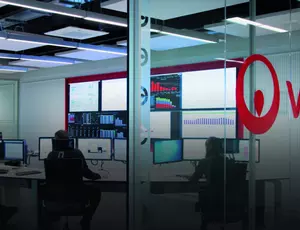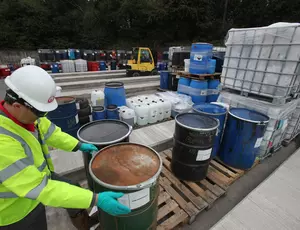In the pharmaceutical market of today, companies are striving to reduce costs, maximise efficiencies and at the same time research and develop new products. The daily running of an advanced pharmaceutical plant requires not only process knowledge and manufacturing knowhow, but a highly skilled team. Expertise is required to operate and maintain the peripheral building and utilities, energy and water services required to create and sustain the manufacturing environment, not forgetting treatment and recovery of the wastes from the production process, together with essential, non-manufacturing services such as cleaning, building maintenance, catering and a host of others.
Outsourcing of these peripheral, non-manufacturing services can offer savings and efficiencies to pharmaceutical companies, allowing them to concentrate solely on the business of developing and manufacturing product for the people and patients at the heart of their company purpose.
However, before looking at what advantages outsourcing of these functions can bring, it is important to understand what is meant by outsourcing, and to differentiate it from 'out-tasking'.
Outsourcing Vs Out-tasking
Many pharmaceutical organisations will use third party vendors or contractors to carry out various maintenance tasks, for example maintenance on specialist equipment such as Water-For-Injection (WFI) stills, compressors and boilers, and many see this as 'outsourcing' these maintenance functions. However, responsibility for quality, scope of work and internal documentation still remains with the client, so in essence it is the specific maintenance task that is being contracted out: in other words, these activities are being 'out-tasked'.
But what if the full utilities maintenance and operation programme itself, to include regular preventative and predictive, as well as corrective, tasks and technical support across energy, water, other utilities and the wastes generated, were contracted out? Now the client is moving into the outsourced model, where a whole function, rather than a specific task, is being contracted out, and it is in this scenario that savings and efficiencies can be made, and valuable headspace freed up for the pharmaceutical company team to focus on core, productive, activities.
Outsourcing of utility services within the pharmaceutical industry in most cases will include clean systems such as high purity water, clean steam, and clean HVAC systems, as well as typical plant services such as chilled water, plant steam, compressed air, waste systems, etc. Facilities services will typically include building fabric maintenance, cleaning, general building services administration and possibly security as well. A well defined scope and clear objectives should be agreed between the pharmaceutical organisation and their service provider, encapsulated in a Service Level Agreement (SLA) between provider and client (the pharmaceutical company).
In the selection of a potential new team to integrate into site, it is also wise to ensure there are shared cultures and values between the two organisations. The level of success will be based on the abilities of the two teams to integrate well together, transparently sharing with each other their respective areas of expertise, for the common purpose of enabling the pharmaceutical company to perform to the highest quality and compliance standards while producing medicines to improve patient lives.
Leading players in this space will have sustainable efficiencies, circularity and carbon reduction at the core of their identity, thus bringing that additional expertise to the benefit of the pharmaceutical partnership, particularly if the arrangement sustains over the medium to long term. A common way of doing things with shared priorities and values will greatly smooth the road to a true partnership and the associated benefits, rather than a transactional client-contractor relationship.
Ensuring client satisfaction

Using a risk-based approach, the scope and responsibility of the service provider can be built up over time, thus ensuring client satisfaction and confidence, particularly around regulatory compliance. It is important, particularly in this regard, that the client doesn't relinquish all responsibility, as ultimate regulatory responsibility lies with the product manufacturer. Appointing key Subject Matter Experts to liaise with the service provider and designing escalation and process flows for change controls, equipment deviations and the like, will ensure adherence to quality and regulatory systems. This is the area that poses most risk to the pharmaceutical manufacturer, but with the proper approach and with good systems in place, this ceases to be an issue.
For the service provider, customer satisfaction is a primary focus and all experienced providers will recognise that adherence to quality systems in a highly regulated industry can 'make or break' any outsourced agreement in this sector.
Regular satisfaction surveys and Net Promoter Score conversations provide an additional mechanism by which the partnership can be reviewed and areas for improvement identified. If the partnership is working well, with the appropriate indicators identified and tracked together, comments such as “go above and beyond to solve issues”, “kept our production going”, “they bring added value to utility maintenance and their responsiveness to requests for continuous improvement” (as received by Veolia in our latest survey interviews) should be expected.
Key Performance Indicators
Apart from strict regulatory concerns, there are other key areas where successful delivery of service can be judged: for example, safe systems of work, system availability, performance against schedule, to name but a few. These can be captured as Key Performance Indicators (KPIs) in a performance scorecard, which can then be linked financially to the service agreement contract.
Each line item can be linked to a performance metric, each metric can be weighted and scoring criteria agreed, and on a periodic basis (monthly, quarterly), the metrics are reviewed and scored.
Linking the score to contract payments (for example, withholding an agreed percentage each quarter pending an agreed KPI score), drives performance from the service provider point of view and if properly chosen, ensures client satisfaction. As the relationship between provider and client matures, the KPIs can be reviewed and changed as either the client-supplier relationship develops, or as business needs change, possibly changing the scope of the original agreement - this would be particularly important in longer term agreements.
Reducing costs
Outsourcing maintenance and facilities allows the client to reduce costs by reducing direct company head-count, and as the pharmaceutical company essentially becomes the customer of the service provider, it is much easier to drive change and continuous improvement within the utilities and facilities function. It also allows them to focus almost all of their resources on the core business of developing and manufacturing product, without having an internal team dedicated to the non-manufacturing activities involved in facilities engineering.
For the service provider, successful delivery of service means more business, particularly in an industry where reputation counts for so much.
Please contact David and our team to discuss any of the questions raised in this article







